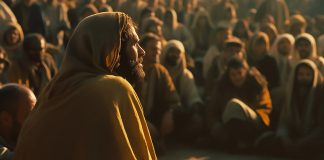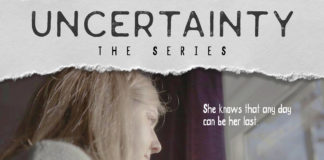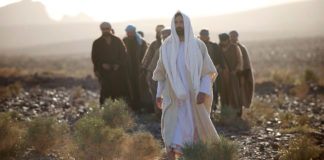The cry of baby Jesus
It is said that the mental illness Friedrich Nietzsche suffered from for 11 years before he died was triggered by the philosopher witnessing a horse being whipped by its master. The cruel sight of suffering made Nietzsche run to the horse and wrap his arms around its neck to protect it. The great philosopher collapsed to the ground, and never recovered from the...
The sacred library in a secular age
In centuries long buried in the mists of time, the Bible was a book for which people were willing to die—whether burned at the stake or thrown into prison. There was a time when Bibles were chained to monastery walls. Today, they are printed and distributed by the millions. Yet it seems fewer people are actually reading them.
Thanksgiving and praise, ingredients of the prayer that changes us
The imbalance between the requests and the thanksgiving we bring into our worship is a topic any Christian can talk about, and not just based on other people’s experience. As long as we approach praise and thanksgiving as duties to be fulfilled, we will miss the greatest blessings that can rest upon a heart full of gratitude.
Ellen White and the joy of helping those in need
In November 2014, Smithsonian Magazine included Ellen White, the co-founder of the Seventh-day Adventist Church, in the top 100 most significant American personalities of all time.
The Second Coming Files: A 2000-Year Inquiry | Part IV: The world in the 18th-19th centuries
In the first three articles in this series, we examined what Scripture says about the coming of Jesus, and also how the biblical books of Daniel and Revelation remain the foundations of understanding time.
Jesus also loved…
"History shows how surpassingly difficult it is for Christians not to forget Christ," says Professor Chris Green. Forgetting does not mean losing sight of His existence, but rather losing sight of His way of being, His values, and His way of relating to those around Him.
The imperatives of absence
Contrary to one's initial impression, vigilance is not the main theme of Jesus' parables of "absence and expectation." Absence is central to these stories, because it is absence which enriches them, rather than impoverishing them. Absence is not a shortage, a gap, or a sign of non-existence—it is a catalyst.
Finding happiness
I never expected my work to affect my mental health. At first, like most people just starting a new job, I was thrilled about my new class, the kids I would be teaching and the environment I wanted to create for these young minds. I had a real passion for children and couldn’t wait to be the best teacher I could be. I...
“Uncertainty: the series.” First episode of the international documentary online today
Live every day like it is your our last! Many use these phrase as a prop for their riskiest decision, or simply to justify a recklessly extravagant lifestyle. But what would our lives look like if we were to really live each day fully aware that it might be our last?
The tragic divorce
It is not the environment or the circumstances, but the concept of the meaning of life that is fundamental to the course of our lives. Life remains dependent on the value it holds in the mirror of the mind. The way we live is the visible messenger of the invisible inner man. Every form of action is born of faith, and every form...
COVID-19: Second thoughts on Doomsday
Although they are constantly improving their preparedness for crises and disasters, modern societies find themselves powerless in the face of a growing threat: transnational crises.
The risks of discussions about saving the world
Concern for the planet's climate and its ecology has occupied the world's attention for many decades. In the 1980s, the ozone layer depletion caused by chlorofluorocarbons and similar gases was observed, and in 1987, the Montreal Protocol was finalised.
God is love and that makes us eligible, as imperfect as we may be
We have trouble understanding and accepting the image of a loving God, as we have grown too familiar with the type of love that offers itself only when it finds in a person the qualities that make them easy to love.
Jesus: The Word and His words
Jesus' principles can still shape a sincere discourse even though many centuries have passed since the moment they were displayed in His life.
“Why do others love Jesus differently than we do?”
As strange as this question may seem, it is also difficult and has consequences that are not at all negligible. Even if it is not always phrased like this, or perhaps not even spoken out loud, this question arises in every home.


























